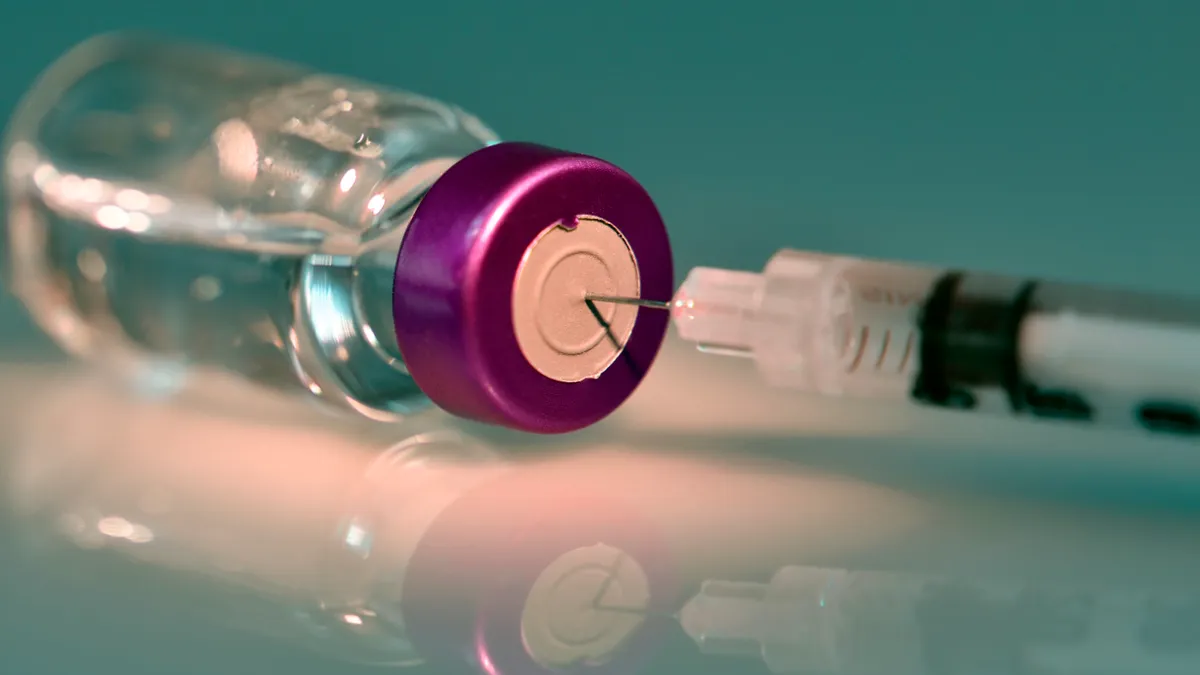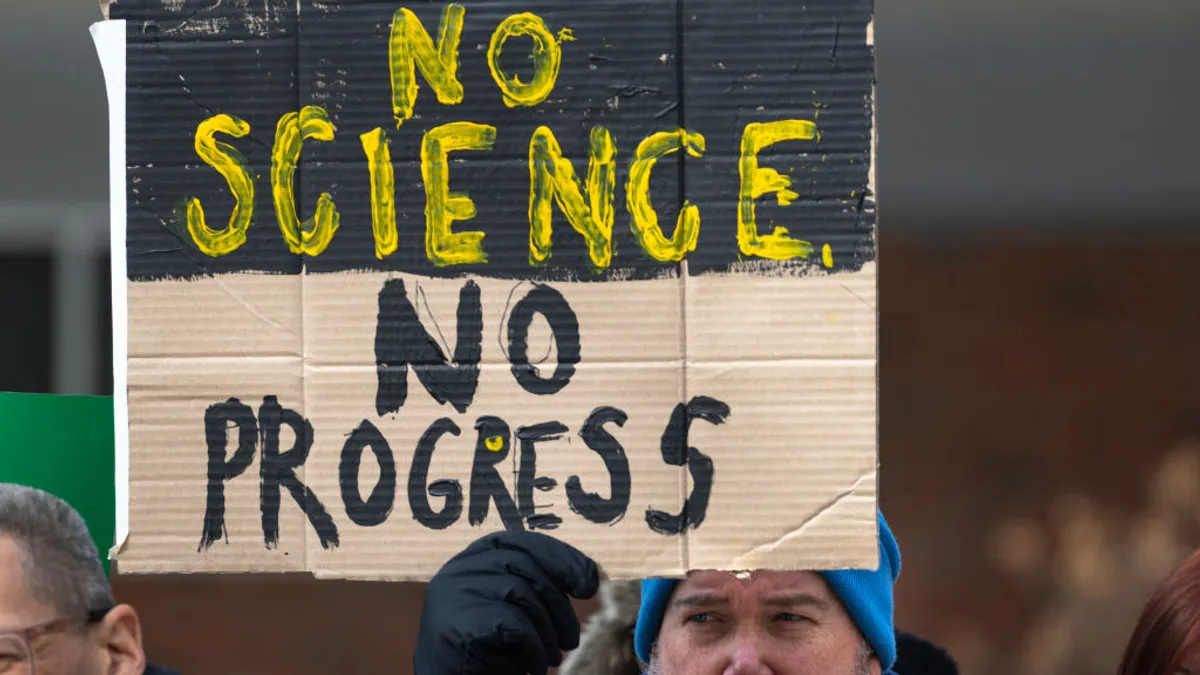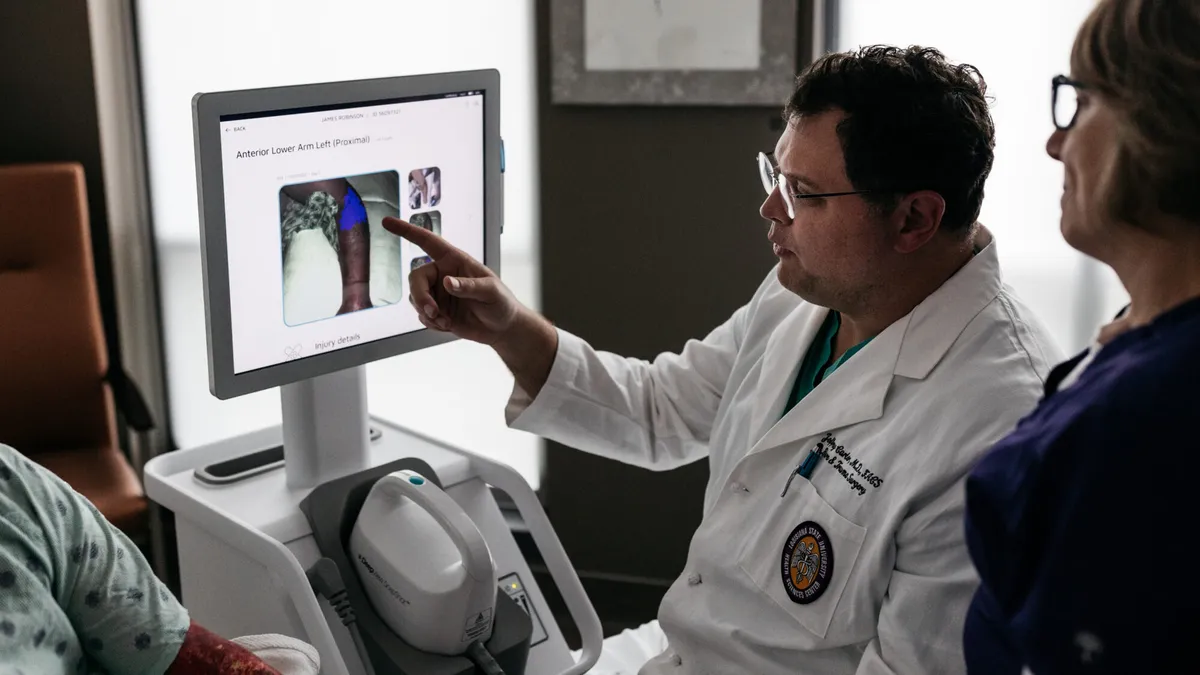A coronavirus vaccine developed by AstraZeneca and the University of Oxford was strongly protective against COVID-19 in the partners’ largest study yet, a significant finding for a shot that has been mired in controversy but could still play a crucial role.
The result, which comes from a Phase 3 trial of 32,449 participants in the U.S. and South America, provides firmer answers to lingering questions about the vaccine’s efficacy and whether it protects older adults equally well. The positive finding clears the way for AstraZeneca to request emergency authorization in the U.S. in the coming weeks, and could help address rising safety concerns that have led multiple European nations to suspend use of the shot, which is cleared in more than 70 countries.
Due to when and where the trial was run, though, it’s unclear how well the vaccine protects against concerning virus variants like the one first detected in South Africa. In a statement announcing the findings, for instance, AstraZeneca, didn't say how the vaccine performed against variants.
Further, the results indicate vaccination was 79% effective at preventing symptomatic disease, which, while stronger than earlier tests of AstraZeneca's shot, are lower than what was seen in studies with two of the three other vaccines available in the U.S. Additionally, the two-dose regimen tested isn’t the one AstraZeneca believes to be the most effective.
Nonetheless, data from the trial are the most conclusive evidence of the strength of the protection that AstraZeneca’s vaccine provides. An independent committee overseeing AstraZeneca’s trial confirmed the results after 141 participants in the study developed COVID-19. The data, from two doses of AstraZeneca's shot spaced four weeks apart, were consistent regardless of age or race. The vaccine was 80% effective, for instance, in the 20% of study participants who were over 65 years of age — the first proof of the vaccine's effectiveness in the elderly. Some 22% of trial volunteers identified as Hispanic and 8% as Black.
"This analysis validates the AstraZeneca COVID-19 vaccine as a much-needed additional vaccination option, offering confidence that adults of all ages can benefit from protection against the virus," said Ann Falsey, the study's co-lead investigator and a professor of medicine at the University of Rochester School of Medicine, in a statement.
As with the other shots authorized in the U.S., AstraZeneca’s appears to protect strongly against COVID-19’s worst symptoms. The shot was 100% effective at preventing severe COVID-19 or hospitalization, and 60% of participants had underlying health conditions, such as diabetes, that put them at risk of poor health outcomes from the disease.
Crucially, AstraZeneca said there wasn't an increased risk of clotting events among the 21,583 participants receiving at least one dose of the vaccine. Several countries in Europe had slowed or temporarily suspended use of the vaccine after a small number of people developed abnormal blood clots soon after immunization. Several have died, including some who had clotting near the brain known as cerebral venous sinus thrombosis, or CVST.
AstraZeneca said last week there is "no evidence" of an increased risk of such events, citing only 15 cases of deep vein thrombosis and 22 reports of pulmonary embolism from more than 17 million vaccinations — lower numbers than would be expected in the general population. AstraZeneca’s findings were supported by the World Health Organization and drug regulators in the U.K. and Europe, which concluded the shot to be safe in reports on March 18.
The committee overseeing AstraZeneca's Phase 3 trial found no cases of CVST. AstraZeneca didn't detail the side effects seen in vaccinated study volunteers, but said the shot was well tolerated and the committee didn't identify any safety concerns.
The controversy over the vaccine’s safety is a stark illustration of the difficulty in disentangling incidental illnesses that happen to occur after an individual’s vaccination, and side effects caused by a specific shot. Even with careful review, such debates can shift public perception.
The Food and Drug Administration, for instance, halted AstraZeneca’s U.S. trial for nearly two months to investigate the cause of a neurological illness in one volunteer. The FDA couldn’t link the case to the vaccine, but that incident began what’s grown into a significant messaging problem for AstraZeneca. Even before the instances of blood clots emerged, doses of the vaccine were going unused in certain European countries amid political recriminations between EU officials and the British drugmaker. Recent reports indicated that the stockpile has since grown, with nearly 8 million doses — more than half the total distributed to European nations — unused as of mid-March.
Hesitancy has appeared heightened by limited and confusing clinical trial results previously reported by AstraZeneca, which pooled together data from smaller late-stage studies in the U.K. and elsewhere. The drugmaker couldn’t definitively say whether its vaccine protected the elderly or other vulnerable groups; the majority of participants in those trials were young and White. Some volunteers in the U.K. study also mistakenly received a mix of lower and higher doses, which AstraZeneca initially claimed was better than the two full dose regimen received by the rest of the volunteers.
But that explanation shifted in the following months. AstraZeneca later insisted protection was greater when the two shots were given three months apart — a theory that, while backed by health authorities in the U.K., still hasn’t been definitively proven in a large trial. More concerns emerged when a small study in South Africa concluded the shot provides minimal-to-no protection against the virus variant that originated there.
In its statement Monday, AstraZeneca reiterated that evidence from previous testing suggests the vaccine is more effective when the second dose is administered later, which could speed up the number of people who can receive their first shot.
Still, even with the positive U.S. trial findings, the role of AstraZeneca’s shot domestically may be limited. The shot, if cleared by the FDA, could help ramp up a fast-accelerating pace of vaccinations. But the U.S. — which had once bet more on AstraZeneca’s vaccine than any other — has already secured enough doses from Moderna, Pfizer and Johnson & Johnson to immunize its entire adult population.
The situation is different in Europe, where a new wave of infections is occurring and there is limited availability of other vaccines, and globally, where many countries still have no access to any vaccine. AstraZeneca could help meet that urgent need, having cut the most supply deals of any drugmaker for a shot that can be stored and shipped at refrigerator temperatures.




















